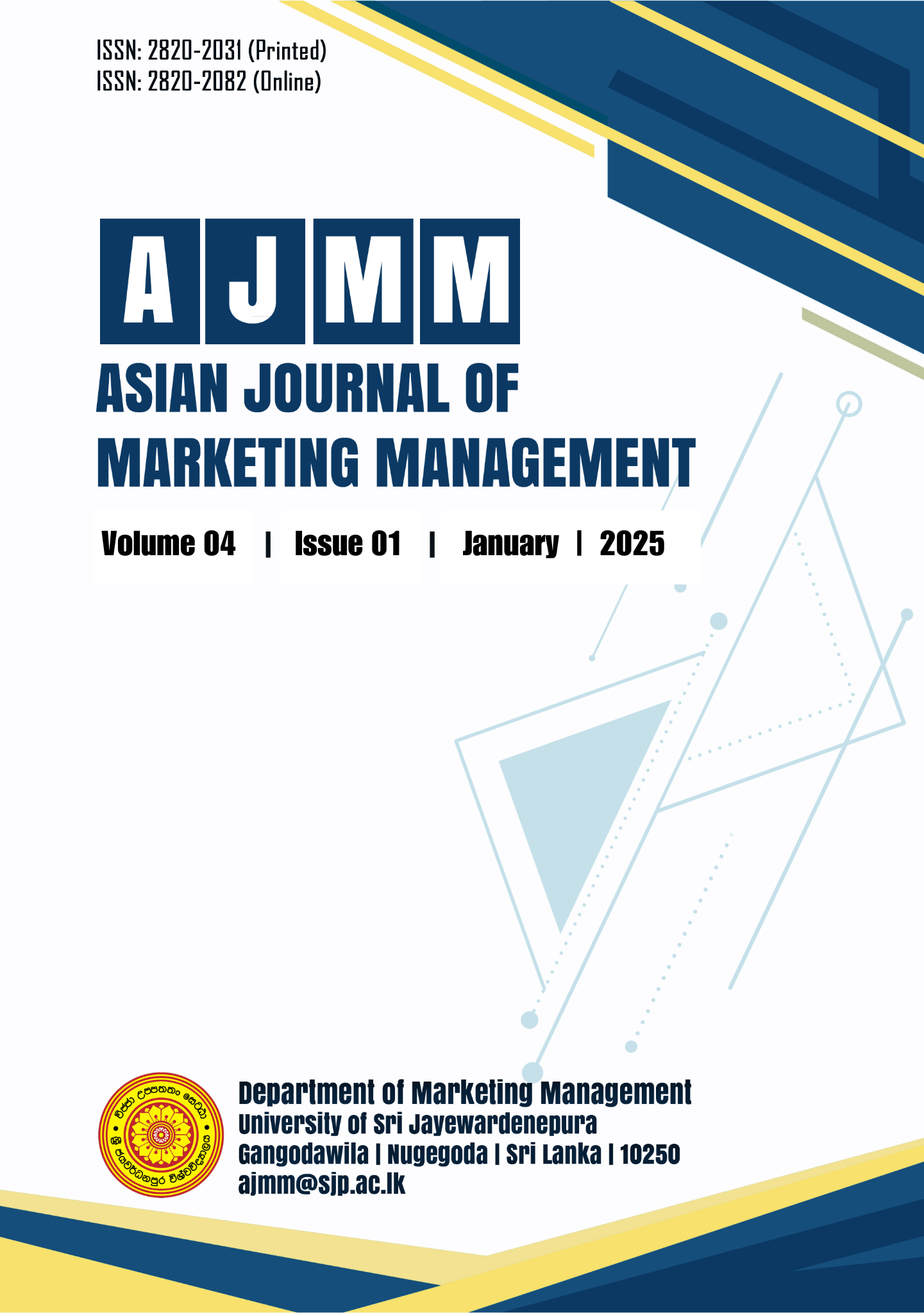Omnichannel Integration and Positive Word-of-Mouth: A Study of Colombo Supermarket Consumers
DOI:
https://doi.org/10.31357/ajmm.v4i1.7748Abstract
Purpose: This study aims to identify the impact of omnichannel integration on fostering positive word-of-mouth (WOM) among supermarket consumers in the Colombo district, Sri Lanka. Focusing on the types of omnichannel integration, namely informational, transactional, and relational, the study investigates how a seamless and unified customer experience across digital and physical channels can drive positive word of mouth among customers in the retail sector.
Design/methodology/approach: Adopting a quantitative research approach, data were collected from 350 respondents in the of Sri Lanka who engage with both online channels, including websites, mobile applications, and social media platforms, as well as offline channels, including physical stores and home delivery services. Multiple regression analysis was utilized to examine the relationship between types of omnichannel integration and positive WOM.
Findings: The results indicate a significant positive effect of omnichannel integration on positive WOM, with relational integration exerting the strongest influence, followed by informational and transactional integration. This suggests that cohesive customer interactions, consistent product information, and seamless transactional capabilities enhance customer experience and drive positive WOM.
Originality: This study's originality lies in its focus on the impact of different types of omnichannel integration on positive word of mouth (PWOM), a topic that has received limited attention in existing research. By exploring this phenomenon within the supermarket sector in an emerging market context, specifically Sri Lanka, it addresses a significant gap in the literature.
Implications: This study contributes to omnichannel literature by revealing how informational, transactional, and relational integration uniquely influence positive word-of-mouth. Theoretically, it extends existing frameworks by empirically demonstrating how these integrations impact trust, convenience, and emotional connections within Sri Lanka's supermarket sector. By enhancing customer experience through integrated channels, supermarkets can leverage omnichannel strategies to strengthen positive WOM and maintain a competitive advantage. Retailers should provide consistent product information and integrate loyalty programs, payment systems, and personalized engagement to build trust, enhance convenience, and drive customer loyalty and positive WOM. The findings underscore the value of strategic omnichannel practices for retail practitioners, particularly in emerging markets.





